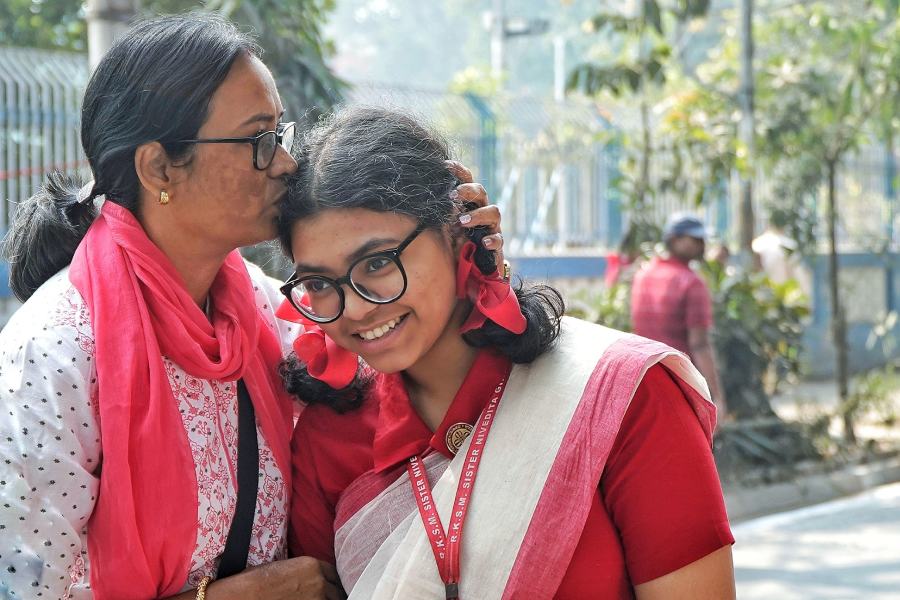There are certain moments with our mothers that never make it into the pages of a family album, yet remain etched in memory — quiet, sometimes fleeting, but always filled with love. The warmth of her hands, the comfort of her embrace, the wait for a plate of bhaat and maacher jhol, or simply the twinkle of encouragement in her eyes — these small, everyday gestures shape our deepest sense of belonging. While some memories fade, others are captured in old photographs that hold stories words often fail to express.
This Mother’s Day, My Kolkata spoke to individuals across the city who shared such cherished memories with their mothers, preserved through fading frames and heartfelt anecdotes, capturing the unshakeable love woven into the fabric of everyday life.
Melodious afternoons and mother’s soulful singing
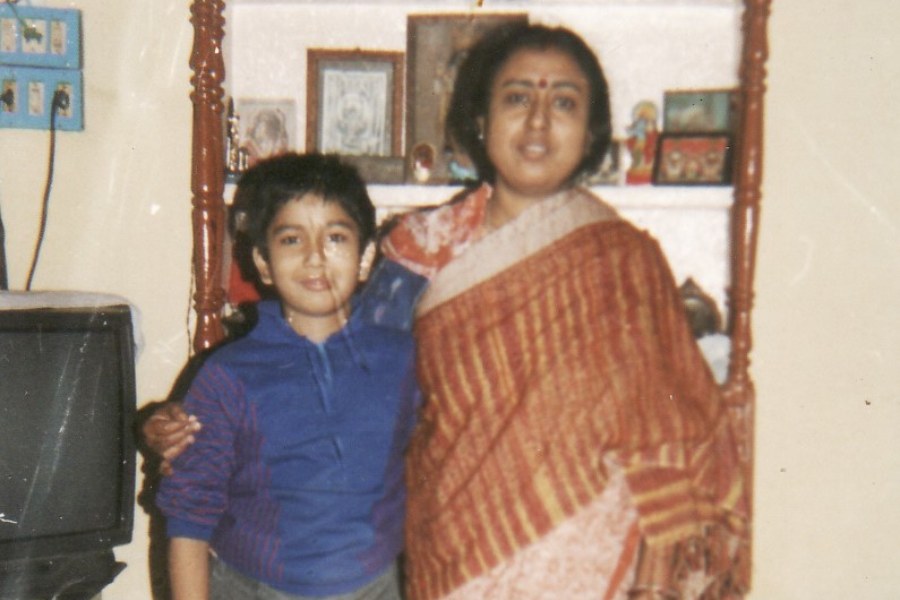
Tanmoy Bhattacharjee with his mother Suparna Bhattacharya Tanmoy Bhattacharjee
Picture this: a home bathed in golden sunshine, secluded from heartbreak; where the epiphany of a quiet childhood unfolds, hums along to the tunes of Salil Chowdhury’s heartfelt melodies and sonorous Rabindrasangeet, and is reciprocated by a motherly voice gently cajoling her child. Writer Tanmoy Bhattacharjee’s childhood was nothing short of a fairytale. Bhattacharjee, who lives in Belgharia, believes it’s unfair to single out one incident that defines his mother, Suparna Bhattacharya, even after all these years.
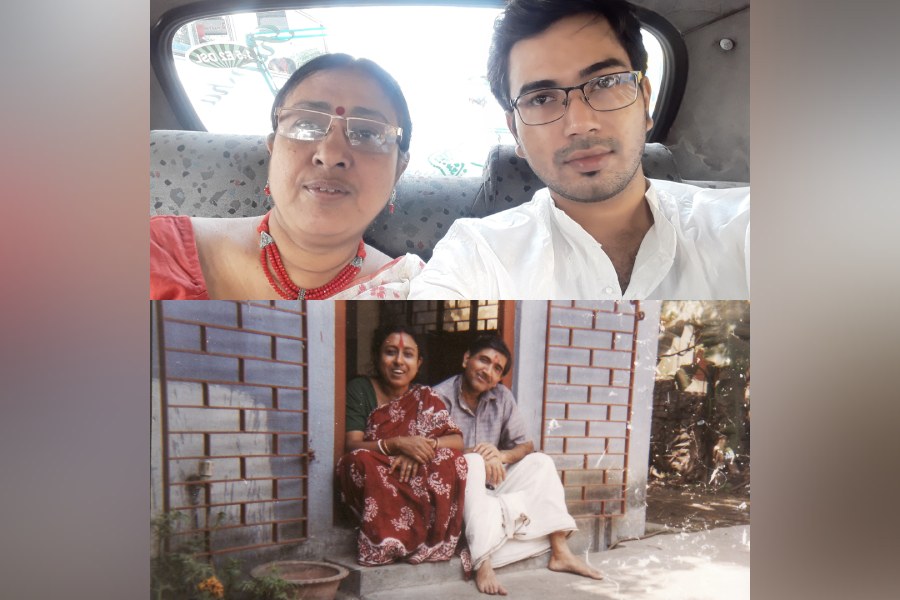
Tanmoy's first photograph featuring his mother and father Chinmay Bhattacharya Tanmoy Bhattacharjee
Bhattacharjee, whose childhood was surrounded by old Bengali classic songs, reminisces about how his mother would comfort him with her melodious voice, singing Rabindranath Tagore’s and Salil Chowdhury's compositions that echoed throughout their house. He recalled a time when he clicked a photograph of his parents; the very first photograph of his life, which carried the memories of a house and a yard that now has vanished with time. Carrying the euphoria of a little Tanmoy and his parents, smeared in abir, the corridors of our minds even get tricked into reliving a time that one has left behind a long time ago.
Those every ‘first times’ spent with Amma
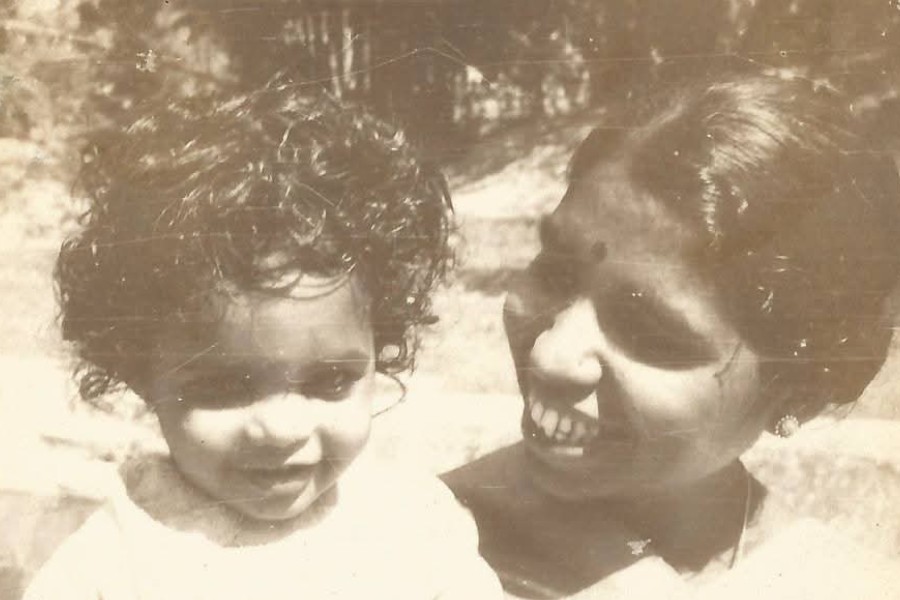
One of the earliest snaps of Nishi Pulugurtha with her amma, Tayaru Pulugurtha Nishi Pulugurtha
Who still remembers the moment when we travelled for the first time in their life? No matter where we travelled or where our journeys took us, there's always a charm for those very ‘firsts’ when we absorb life, tucked into our mother’s arms without wondering about the days ahead. Literature professor Nishi Pulugurtha, from Brahmananda Keshab Chandra College, cherishes one of her earliest trips with her parents to the Dakshineswar Kali temple.
She reminisced about the moment when her father clicked a photograph, which captured a sepia and faded, yet vividly profound moment Nishi shared in the arms of her mother, Tayaru Pulugurtha, for the very first time.
Nishi, who is also a poet, offered a glimpse into a time when mornings seemed gentle and the nights even more kind. It was a time that didn’t require much attention to be put into scrolling a meme or a reel.
A photograph shared by Nishi evokes memories of her curly hair from childhood, which her mother found very difficult to manage. When she grew up, her mother suggested that she cut her unruly locks. This advice brings back nostalgic feelings for Nishi, who now recognises the challenges her mother faced, but also believes that it was a way for her mother to show love.
A mother’s intuition, support, and strength never fail us
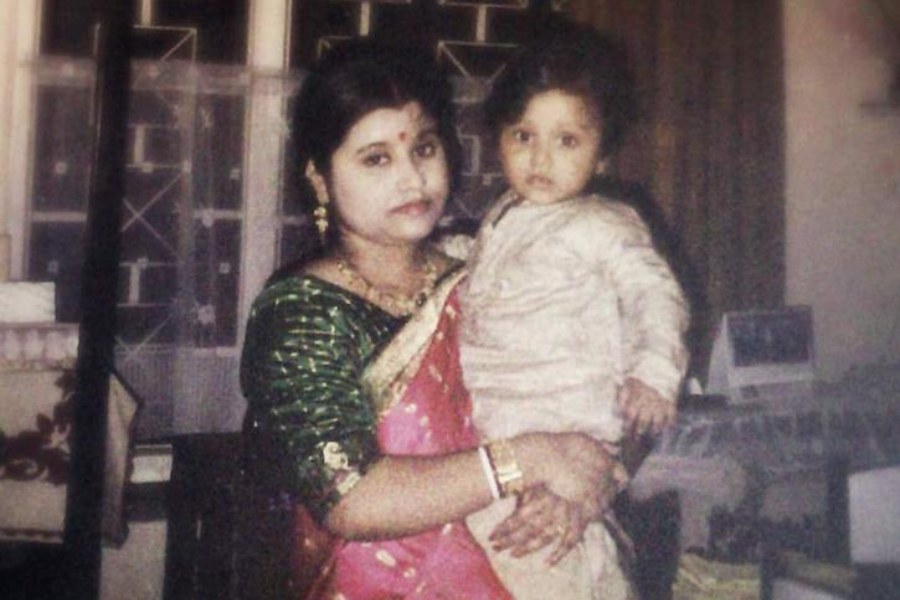
Sagnik Gupta and his mother Sanhita Gupta Sagnik Gupta
“Maa, if only I had heeded attention to what you had warned me about, then life would have been different,” rued tram activist and media person Sagnik Gupta, when asked about what cherished memory of his mother he clings to.
In life, we always stumble upon that one archetypal concern our mothers have for us over the years — ‘Amar mon bolche…’ It reflects the intuition of our mothers, rooted in care, tradition, and years of observation — something that often transcends logic and still holds weight in our decisions.
Sagnik, who works as a video editor with a media house, said that all this while, his mother has acted as a guiding pillar — a lighthouse — who advises him, warns him, and cares for him, no matter what stage he is at, thriving and surviving in his own way.
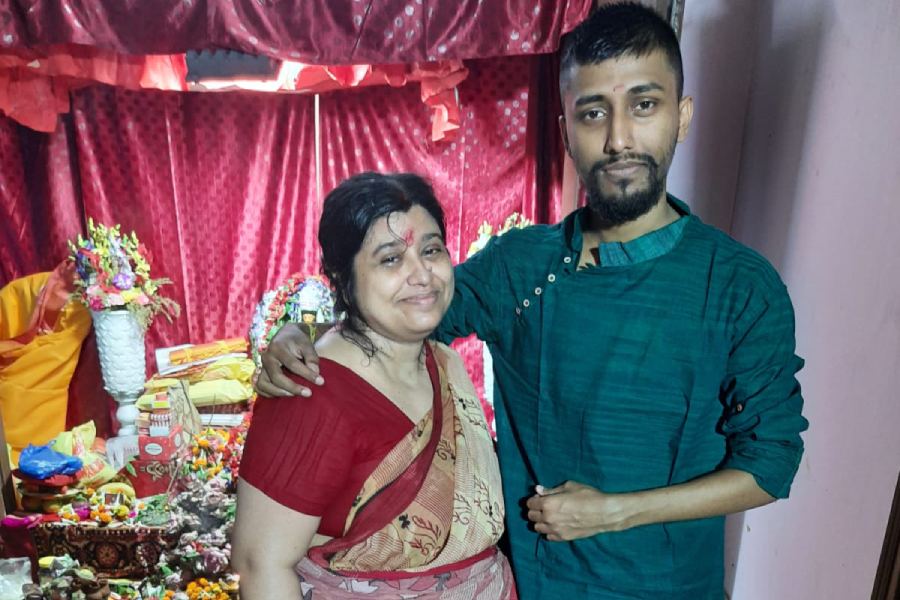
Sagnik Gupta and his mother Sanhita Gupta, now Sagnik Gupta
Whether advising him to follow his passion in life rather than following the crowd, or showing concern over staying around compassionate and honest people, whenever life felt hard for Sagnik, his mother, Sanhita Gupta, has always supported him with her affirmation and been the light at the end of a tunnel.
Sagnik cherishes one of those early days of Durga Puja at his house, when he was a kid, tugging around the end of his mother’s sarir aanchol, which took him by the hands to days of joy and innocence — when the scent of incense, the rhythm of dhaak, and the warmth of his mother’s presence made the world feel complete.
Experiencing the joy of freedom for the first time with Maa
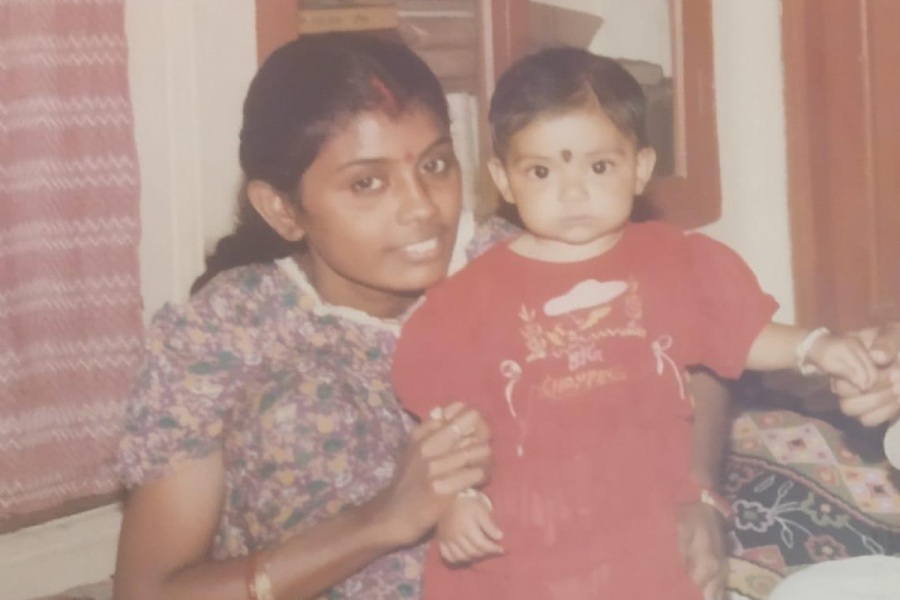
A toddler Meghna with her mother Mousumi Ghosh Meghna Ghosh
Despite the monotonous humdrum of routine life, a festival always arrives with a speck of joy even. When it comes to Durga Puja, the spirit of every Bengali twirls at least once to the rhythm of the dhaak. A festival becomes truly momentous only when we are surrounded by our loved ones.
Behala resident Meghna Ghosh has always missed her father, especially on Puja days, since he was in the Indian Army. Although the festive lights shone bright on her face, it was her mother who kept them lit all night.
Ghosh, who is a content creator and a professional, said that she still cherishes going out pandal-hopping with her mother, Mousumi Ghosh, who never let her realise the absence of her father.
Ghosh also pointed out that during the 2000s, she had always felt confident, independent, and liberated among the other pandal hoppers of her age, who were mostly joined by their fathers or other male family members. Meghna and her mother had each other.
She said that she is always in awe of how her mother could take care of her, manage the household chores, and still handle her school. She still reminisces about the left-behind Durga Puja nights that brought them close and inspired her. Ghosh proudly says that her mother has inspired her the most, and she gets the zeal to live life to the fullest from her.
The void after losing a mother
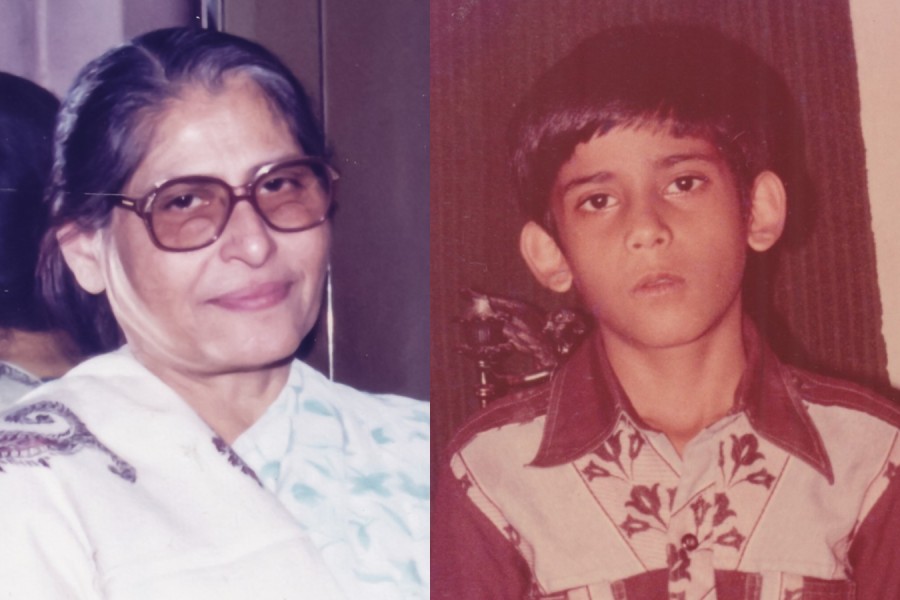
Siddhartha Paul and his mother Pratima Paul Siddhartha Paul
Nothing eases the shattered realisation of losing a parent. In a quiet corner of Kolkata, a son carries his mother’s memory like a sacred ritual. For 10 years, she remained confined to a bed — her presence commanding the room, her voice the clock that governed his comings and goings. Even after her passing, he finds himself glancing at that bed, now empty, yet so full of echoes. The ritual remains: entering the room, eyes instinctively drifting to where she once lay.
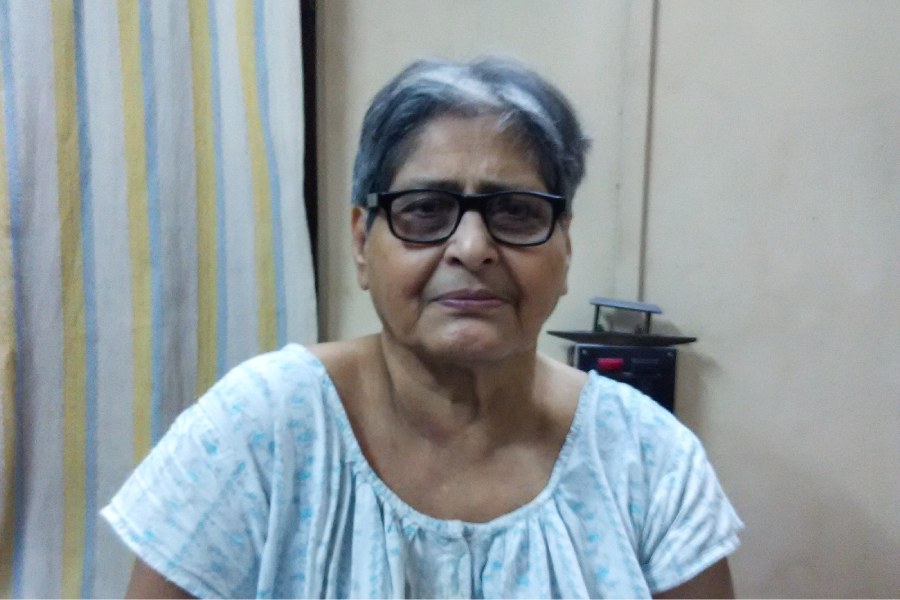
Pratima Paul Siddhartha Paul
Siddhartha Paul lost his mother in 2016 after 10 years of illness.
He recalls how she joked during her farewell, smiling as if freeing him at last — from care, from cost. But he confesses, neither freedom nor savings followed. What remained was a long walk through the city, where he found healing in its embrace. “It’s not strength,” he says, “it’s Ma’s blessing.” In the act of remembering, he continues to live — and through him, so does she. A quiet testimony to the invisible thread that stays long after the farewell.
Losing a mother is like losing a part of your foundation — suddenly, the world feels less steady, less certain. Her voice echoes in your mind, her love lingers in quiet moments. Grief comes in waves, but so does the strength they instilled in you. She might part ways with her beloved children, but her presence never truly fades.
